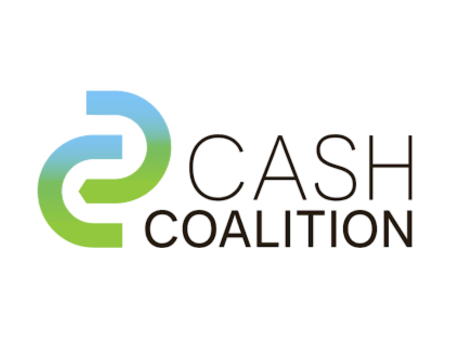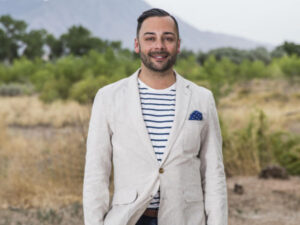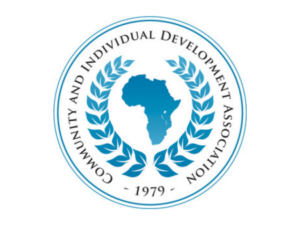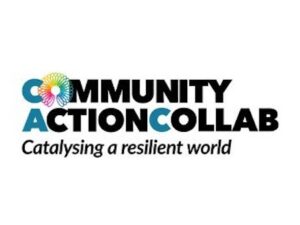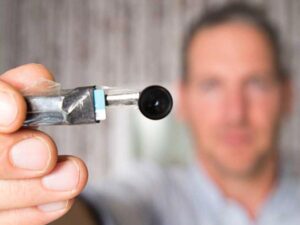The Climate Action for Smallholders Coalition (CASH Coalition) aims to make regenerative agriculture and climate action profitable for smallholder farmers. They do this by accelerating smallholder regenerative transition and catalyzing climate action at scale through advocacy, capacity building, and research.
Heiner Baumann and Jonathan Faull of CASH Coalition spoke with Jessica Kantor on January 17, 2024. Click here to read the full conversation with insights highlighted.
Jessica Kantor: Can you please introduce yourselves, your titles, and the organization that you are working with?
Heiner Baumann: I am Heiner Baumann. I’m the Executive Director of the CASH [Climate Action for Smallholders] Coalition.
Jonathan Faull: I’m Jonathan Faull. I’m the Communications Lead for the CASH Coalition.
Jessica Kantor: Can you describe the problem that you are addressing with the CASH Coalition? How specifically are you responding to that problem?
Jonathan Faull: Approximately 500 million smallholder farming families worldwide are excluded from carbon finance systems and unable to participate in carbon mitigation work in a coordinated or scalable way. The status quo is foregoing two big opportunities.
From our work as a coalition, we know that smallholder farmers in the Global South are very conscious of climate change and want to mitigate it. Yet, we’re literally foregoing the contribution of hundreds of millions of farmers as we look to scale climate solutions.
The second missed opportunity relates to poverty mitigation: smallholder farming families are overwhelmingly poor. By recalibrating access to carbon finance, we can pay indigenous and local farmers for climate mitigation work and ecosystem services. In this way, we can concurrently advance climate change solutions, accelerate a smallholder transition to regenerative agriculture, and address intractable development challenges. It’s a twofer: you get the climate change work, and by rewarding smallholder communities for mitigation work and ecosystem services, you can address poverty at the same time. Ultimately, one can address two of the largest contemporary international challenges: climate change and poverty.
Jessica Kantor: How are you engaging with the communities themselves?
Jonathan Faull: We are a coalition of thirteen farmer-facing social enterprise organizations; many are very old and established, and a majority already engage with indigenous and local communities at scale. As a coalition, our ‘farmer reach’ is over sixteen million, and there are tens of millions of hectares of farmland and forests stewarded by the farmers we work with.
Our constituent members work with smallholder communities across a range of contexts and in different ways. Some of our members — like One Acre Fund — have one-to-one contract relationships with farmers. Others, like Root Capital, are working with small businesses at the base of the pyramid by facilitating market and commodity supply chain access. Others, like Digital Green, working mostly in East Africa and South Asia, partner with extension workers to empower farmers with knowledge. Proximity Designs, working in Myanmar, and Forest Trends facilitate the adoption of new technology and inputs to increase productivity among smallholders while restoring or preventing further degradation of soil and land.
Through these different modalities, as a coalition, we can agglomerate scale and opportunities for farmers.
Heiner Baumann: Being a smallholder farmer already is, and has always been, difficult, for many reasons. Now you have climate change on top of that, and that makes it much worse. It’s very, very felt by those farmers.
The question becomes how to help those farmers adapt to climate change while simultaneously introducing and/or scaling regenerative land management practices that help with addressing the root causes. That’s what we’re trying to do. There are more than 30 evidence-backed measures that smallholder farmers can pursue to adapt to and mitigate climate change. But most often farmers are facing real barriers to adopting those measures. For example, lack of finance, short-term profitability, insufficient knowledge, and/or access to necessary inputs or technologies.
We’ve taken on the task of helping our member organizations and their farmers overcome those barriers, all with the goal of mainstreaming regenerative agriculture and helping smallholders participate in climate action. Climate action is both adaptation and mitigation-related. Smallholder-focused climate mitigation work is relatively new. It requires technical knowledge and capabilities that aren’t easy to build. Getting into carbon and climate finance requires upfront investments and capital that is not easy for individual smallholder-serving organizations to acquire. As the CASH coalition, we are supporting individual organizations to assess the potential of turning existing work into carbon projects and to assist farmers to access payments for work they are doing in reducing GHG emissions (for example by reducing deforestation or avoiding crop residue burning) or naturally sequestering carbon through agroforestry.
Some of this carbon work is relatively new, and engaging in processes and standards that were not developed with smallholders in mind might seem as the most distinct – but it is really only one piece of the overall picture of how smallholder farmers can be involved in and benefit from climate work. While additional income generated from selling carbon credits may be modest relative to income from selling crops, this income will reward farmers who already apply regenerative practices and create a powerful new incentive to transition to healthy and sustainable agriculture for farmers engaged in unsustainable land management practices.
Jessica Kantor: It sounds like one of the things that makes your approach distinctive is that you are reaching smallholder farmers and providing the organizations serving them support that other organizations are not. How did you come to that decision?
Heiner Baumann: That’s an interesting part of our history. Our founding organizations are all very well-decorated and successful social enterprises that have been doing their work individually. While that certainly works for most things, some of this work is very hard to do as an individual organization. We realized that all organizations can benefit from radical knowledge exchange while helping farmers access climate finance, and that by approaching the system of climate and carbon finance we will be more effective at speaking with one voice on certain issues.
For example, some foundations believed it was unfair to ask smallholders to get involved in climate mitigation because smallholder farmers are not a primary driver of climate change and have very few resources. But we – as the organizations working with smallholders – strongly suspected that farmers would not necessarily agree with that narrative. So, over two months, the CASH Coalition used its boots-on-the-ground capacity and conducted 1,600 interviews with smallholder farmers in ten countries and came out with a report that showed what farmers really wanted, in their own voices.
It was clear that smallholders shared four points. First, they do understand climate change. Second, it hugely impacts them. Third, they want to be a part of solutions. Fourth, it needs to be profitable for them. We can’t ask them to do work without a benefit for them. They simply can’t afford that. The Farmer Voice Report is an example of what becomes possible by working collaboratively. No single organization could have accessed that many farmers involved in such a short period of time. We hired Dalberg consultants to prepare and analyze the surveys, but our members and their staff conducted the interviews on the ground.
We produced a report to bring to the African Climate Summit as a draft and to COP28 as a finished report. By bringing recent data on the topic of including smallholder farmers in the ways they would want to be involved in climate change, we were able to meaningfully contribute by giving input to the overall discussions and negotiations.
Jessica Kantor: We know responses do better when they’re culturally specific. How have you scaled that globally? Have you received any pushback from farmers who don’t necessarily think that this is something that has to do with them? If so, how have you addressed that?
Heiner Baumann: I agree that solutions need to be specific to the local context, including different cultural contexts, agro-climatic conditions, and input availability. CASH members customize solutions to the contexts in which they operate. Farmers’ main concerns are almost always yield and financial impact, and anything we suggest needs to be looked at through that lens.
Introducing new practices naturally leads to questions and sometimes pushback, and that is a fully normal and good thing. For example, suggesting that trees be grown on very limited land where farmers grow ground crops raises questions and concerns about how this will impact the yield of existing crops. We must explain and demonstrate with pilot projects that those things can go together.
For someone who relies on the sale of crops they sell season-by-season, who lives on the verge of hunger, it is a hard sell to ask them to plant trees that might not produce anything for several years, or that require semi-shade. The farmers need to understand, in their own way, and in their context, how new practices benefit them. For example, in some situations, the benefits from agroforestry derive from partial shade (e.g., for arabica coffee). In others, it is improved soil fertility from increased organic matter, boosted microbiological activity, and nitrogen fixation (e.g., for soybean monocultures), and in yet others it is the fruit (e.g., avocado or mango), the firewood from branches, or the leaves that can be used as high-value animal fodder (e.g., Moringa). Often it is a combination of these types of benefits. From a climate perspective, irrespective of the specific farmer benefit, carbon will be sequestered, and there is the potential for monetization of that carbon removal. Agroforestry as a solution needs to be carefully customized to each situation and communications with farmers must be adapted to the local situation. Sometimes the granularity of a solution will be at the regional level, other times at the village level, and yet other times at individual farmer/farm or plot level.
Starting from scratch is always the hardest, and in these situations, starting with model farmers or suggesting that farmers try something out on small parts of their own land, may help. Providing protection from the downside (e.g., insurance) can also help. Once farmers see and experience improved results from applying a practice on a small part of their land, or the land of one of their neighbors, they are much more likely to adopt the new practice.
Jonathan Faull: Farmers usually resist or ignore practices they perceive to be too financially risky. As a coalition, we can do a great deal to derisk new practices: broker benefits, improve access to technology, improve inputs, etc.
The CASH Coalition stands on the shoulders of longstanding relationships of trust underpinned by demonstrating benefits to communities. On a more macro view, part of all this work is ensuring that smallholders have a voice, and that local knowledge and expertise enrich emerging and existing solutions. We work to ensure that indigenous peoples and local communities are part of the conversations that frame carbon work, access to carbon finances, standards, measurement, reporting and verification, etc.
Part of the problem that we’re trying to address is that many of the agreements on the table were brokered in boardrooms by guys in suits who don’t take into account the realities of the world that smallholders live in and the constraints that they confront.
The European Union recently passed a piece of regulation, EUDR (European Union Deforestation Regulation), which imposes transparency and sourcing requirements on seven commodities that include coffee, rubber, and cocoa – markets in which smallholders dominate. They’re requiring that you demonstrate – from farmers to the EU market – a guarantee that deforestation did not happen en route to a product being sold in a European market.
It’s a well-meaning regulation – “It just requires a smartphone. It’s easy!” – but the reality is that the smallholders in rural Myanmar, Vietnam, or DRC simply don’t have access to smartphones, data, or networks in ways taken for granted in the European Union. We have one year before it becomes effective. We have published an op-ed to shine a light on the potential impacts with a call to action to address the gaps in this regulation.
There are ways of framing deforestation regulations that can incentivize and advance smallholder farming practices. And there are also ways you can devastate smallholder livelihoods by cutting them out entirely and encouraging traders to use larger, wealthier suppliers. These macro actions need to be cognizant of the smallholder realities so that their voices can inform how these actions are implemented and ensure they can benefit from it.
Jessica Kantor: I understand that at the beginning, the coalition was a group that had come together, but are you looking to expand? If so, what does that process look like? What are you looking for in an organization, for them to join?
Heiner Baumann: We are open to grow, but it has to be done in a very careful way. This is not a coalition that views itself as a club, where you have a member who comes and pays a fee, and the more you pay the better the membership deal. We view ourselves very much as a team with a joint objective: to figure out how we can make smallholder-focused regenerative agriculture and climate action profitable and scalable. For that early phase, where the focus is on innovation and a minimum viable product, too many members won’t help. We need the right members and strategic partners who complement each other and work well together. We need — and we have — members open to radical collaboration, open to sharing resources, and who contribute with sweat equity. Once we feel we have solutions, the priority will switch toward having more organizations involved in replication and scale-up. We expect sweat equity, and we expect radical sharing of what works, of what doesn’t work, and of access to resources.
Jonathan Faull: The point of the sweat equity is critical. Currently, Heiner and I are the only full-time employees, complemented by some highly capable consultants. We rely a lot on our member organizations to make the work happen. It’s not something where you can just pay a fee, then put the CASH logo on your website. This is an activity-based coalition that requires buy-in and action.
Jessica Kantor: How do you all measure success? What is the evidence that you are making progress?
Heiner Baumann: Ultimately, we’d like to see two main outcomes. The first relates to livelihood outcomes, such as an increase in net farmer income, more assets, and more risk protection from the swings of climate change.
The second relates to environmental and climate results. Within local ecosystems, we want to do our work in ways that restore and protect soils, forests, and water/aquifers. We’d like to see more fiber, natural nutrients, and organic solutions rather than chemical stuff.
On the climate side, we will measure reduced GHG emissions and carbon removal. This will be done through monitoring, verification, and validation processes embedded in the generation of carbon credits.
Interim measures may include the number of farmers adopting certain regenerative agriculture practices or the number of hectares under more sustainable management. Yet one level down is measuring access to relevant information, financing, and technologies.
Certain results, such as avoidance of crop residue burning and related climate benefits, can be measured quite quickly. Other outcomes, such as measuring increases in net incomes from agroforestry, may take many years to distill.
We will certainly try to build on and leverage the outcomes measurement frameworks CASH members use. Another input, albeit potentially overwhelming, may be a subset of the 100 potentially relevant frameworks for measuring farm-level outcomes. Regen 10 has been working on creating an integrated holistic and farmer-centric approach to measuring the changes that occur in farms over time.
Jessica Kantor: As you’re growing and learning, are there any specific lessons that you can share? Things you’ve tried so far that haven’t worked or things you have not yet been unable to overcome?
Heiner Baumann: We certainly have good initial learnings from the process of building the coalition. Challenges included bringing people together and making time for in-person, in-depth collective discussions. We met at the last Skoll Forum, but it wasn’t enough time, so we decided to have a two-day, in-person strategic meeting less than two months later. That allowed us to really get aligned on priorities for the first year. We needed a collective vision, and there needed to be some ground rules about working together, without which we wouldn’t have felt comfortable participating in, nor allocating resources to, this endeavor. There needs to be trust built on open sharing. In-person meetings, adjacent to conferences such as Skoll World Forum but also dedicated two-day, in-person member meetings, have been critical for us to make sure we are aligned on priorities and also for mutual learning. Working groups pursue specific tasks, and we have monthly all-member calls and weekly Executive Committee calls. Institutionally, we are a program under fiscal sponsorship, and for the first year, this setup has worked well. We were so lucky to have benefitted from the coalition-building experiences and advice of the Community Health Impact Coalition (CHIC).
Interviewing farmers in 10 countries and developing the Farmer Voice report provided a rich set of insights and lessons on how to get things done. A clear deadline, the majority of work performed by CASH member representatives, augmented with some consulting support, proved to be the key ingredients to get stuff done collectively.
We have learned a great deal about the barriers that smallholder farmers and the CASH member organizations serving them are experiencing in accessing climate finance, and we have come up with a plan on how to overcome those. By deciding to invest in four pre-feasibility studies, we have taken the first steps of starting a CASH carbon portfolio, and I expect this will yield many insights and lessons over the coming years.
Having a trusted network of people, not just member organizations but also strategic partners such as Encourage Capital, who are all willing to contribute to building the coalition, has made all the difference. It is clear to everyone that certain barriers can only be overcome, and system impact can only happen, if we bundle our knowledge, capabilities, and resources.
Jessica Kantor: That’s something that is coming up in a lot of these interviews, which is when you are trying to solve an issue as large and intense as climate change or poverty, you can’t go at it with a capitalistic profit mindset. Otherwise, you’re working against yourself and are never going to solve the problem. There needs to be collaboration throughout all the different organizations working at it from different levels and angles, or else it’s never going to change.
Jonathan Faull: We are also able to do work across streams. For example, we have a working group on voluntary carbon markets. By connecting them all together, you can catalyze ideas much faster than would happen at each individual organization. Bridgespan has written about ‘field catalysts’ and Skoll has shown interest in supporting that – based on CHIC and CASH. We’re demonstrating a very different application of this cooperation across organizations that have already been around for a long time.
We’ve got 13 members currently and nine more prospective members. There are clearly benefits that organizations can see both in and out of the coalition. It’s been remarkable to be able to broker conversations, advance projects, and get into the activities so quickly. There’s clearly a demand for an environment in which one can catalyze collective action, but the secret sauce of the coalition is that it opens up new spaces and new opportunities through peer-to-peer learning and collective action. We can move from conversation to action much more quickly than individual organizations could.
Jessica Kantor: Thank you both for your time talking with me today.
Click here to read the full conversation with insights highlighted.
Jessica Kantor is an independent journalist specializing in health, human rights, and social impact. Her work can be found in Fast Company, Healthcare Quarterly, The Las Vegas Review-Journal, and others. She is a living kidney donor.
* This interview has been edited and condensed.
Find other organizations working with smallholder farmers.

